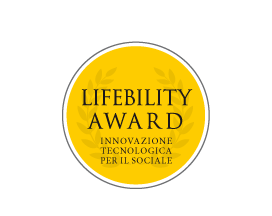LB.12.043P_FOODURO
Per partecipare al concorso i progetti vanno inviati entro:
Anna Perazzo, Roma
Dicembre 2020. Executive Master in Circular Economy Management, Luiss Business School, Roma. Nasce Fooduro.
Fooduro vuole rendere la Food Delivery sostenibile e circolare, riducendo la produzione di rifiuti legati al packaging ma anche l’utilizzo di risorse necessarie per la loro produzione e il loro smaltimento (anche quelli riciclabili!) e creando una rete di ristoratori e consumatori consapevoli che rendano le nostre città più sostenibili.
L’idea di Fooduro è semplice: porsi come partner di Food Delivery Provider e Ristoratori, fornendo ai ristoratori dei contenitori riutilizzabili per la consegna che preservino la qualità del cibo, e, allo stesso tempo occuparsi della gestione della reverse logistic del contenitore.
Quanti di noi usufruiscono del servizio del digital food delivery? Molti, sempre di più. La Digital Food Delivery oggi ha raggiunto un’estensione geografica pari al 70% della popolazione e alla crescita del tasso di utilizzo del servizio corrisponde un aumento dei rifiuti da imballaggio.
L’impiego di un contenitore riutilizzabile evita da un lato le emissioni legate alla gestione del rifiuto da imballaggio e dall’altro il risparmio di nuove materie prime e risorse per la produzione di nuovi imballaggi. Il riutilizzo può aiutarci a rendere le nostre città più pulite, sostenibili e sgombre da rifiuti.
Come? Cerchiamo di raccontarvi la nostra idea.
Il consumatore effettua l’ordine tramite una piattaforma di Food Delivery, nostro partner, attraverso cui è possibile aderire al servizio di Fooduro. All’adesione del servizio, viene chiesto al cliente come preferisce restituire la box, seconda una delle modalità previste:
- Riconsegna presso un HUB
- Ritiro della box effettuato da un operatore Fooduro.
ll ristoratore riceve la notifica che si tratta di un ordine Fooduro, insieme all’indicazione sulle modalità di riconsegna. Prepara la box che verrà poi riconsegnata secondo le modalità previste.
Un’idea semplice che ha però il potenziale di migliorare le nostre città e renderle più pulite e sostenibili e le nostre scelte più consapevoli.
December 2020. Executive Master in Circular Economy Management, Luiss Business School, Rome. Fooduro is born.
Fooduro wants to make Food Delivery sustainable and circular, reducing the production of waste related to packaging but also the use of resources necessary for their production and disposal (even recyclable ones!) And creating a network of restaurateurs and consumers that make our cities more sustainable.
The idea of Fooduro is simple: to act as a partner of Food Delivery Providers and Restaurateurs, providing restaurateurs with reusable containers for delivery that preserve the quality of the food, and, at the same time, take care of the management of the container’s reverse logistic.
How many of us use the digital food delivery service? Many, more and more. Digital Food Delivery today has reached a geographical extension equal to 70% of the population and the increase in the rate of use of the service corresponds to an increase in packaging waste.
The use of a reusable container avoids on the one hand the emissions related to the management of packaging waste and on the other the saving of new raw materials and resources to produce new packaging. Reuse can help us make our cities cleaner, more sustainable, and freer of litter.
How? We try to tell you our idea.
The consumer places the order through a Food Delivery platform, our partner, through which it is possible to join the Fooduro service. Upon joining the service, the customer is asked how he prefers to return the box, according to one of the methods provided:
- Return to a HUB
- Box collection by a Fooduro operator
the restaurateur receives the notification that it is a Fooduro order, together with an indication on how to return it. Prepare the box which will then be returned in the manner provided.
A simple idea that, however, has the potential to improve our cities and make them cleaner and more sustainable and our choices more aware.

